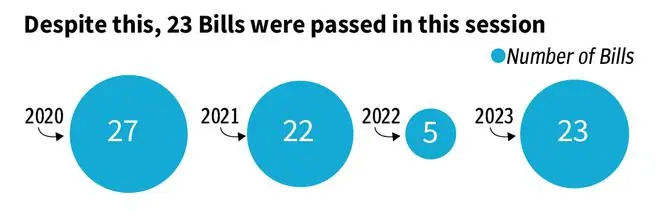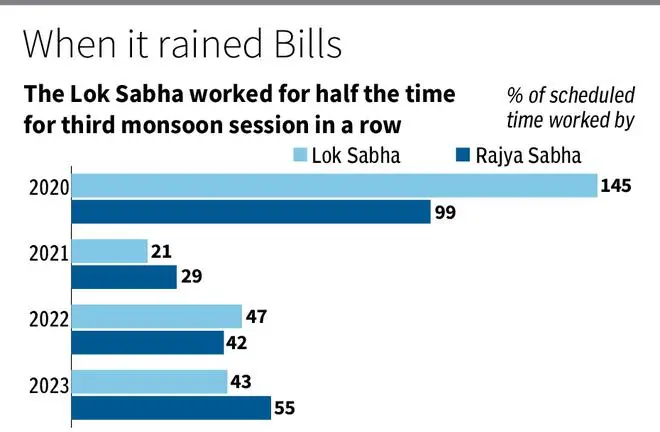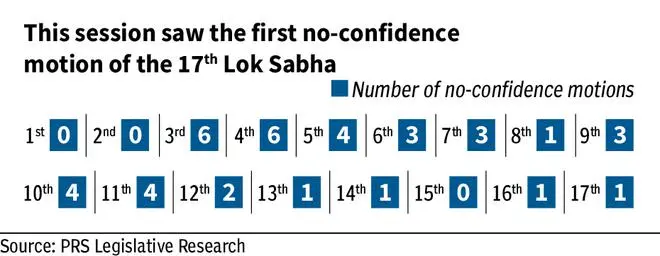The recently-concluded monsoon session of the Parliament was notably distinctive. Despite a reduced number of working hours, both houses managed to successfully pass 23 of the Bills. This means a Bill was passed a day on average, even though the Lok Sabha functioned for just 43 per cent of the scheduled work time and the Rajya Sabha functioned for 55 per cent of the time.

Data from PRS Legislative Research shows that this was the third monsoon session in a row, where the Lok Sabha functioned for less than half of the scheduled time. However, the number of Bills passed was the highest compared to the Monsoon sessions of 2022 and 2021. The Rajya Sabha’s productivity was slightly higher than in the last two Monsoon sessions.
A heavy Bill pour
True that a good number of Bills were passed during the session, which ended on August 11. It is also noteworthy that a lot of them were passed without much discussion. For instance, most of the Bills that were introduced in this session, 56 per cent of them were passed before its conclusion.
The lowest amount of time was spent discussing the Central Goods and Services Tax (Amendment) Bill, 2023, and The Integrated Goods and Services Tax (Amendment) Bill, 2023. Both houses cumulatively discussed these Bills for five minutes each before passing them. They were passed on the day of introduction.

The controversial Delhi Services Bill, which expands the discretionary powers of the Lieutenant Governor, was passed on the sixth day of introduction. Both houses cumulatively spent close to just 13 hours discussing the Bill. Similar was the case with the much-discussed Digital Personal Data Protection Bill 2023, which was also passed on the sixth day of introduction. Just a little more than two hours was spent cumulatively by both houses to discuss the Bill. PRS’ analysis shows that in this Lok Sabha, just 17 per cent of all Bills have been referred to Committees. This is lower compared with the last three Lok Sabhas.
When confidence dropped
The session also saw the introduction of the first no-confidence motion of the 17th Lok Sabha. It was admitted on July 26, and discussed the recent violence in Manipur and Haryana.

Barring the first, second and 15th Lok Sabha, every other assembly has seen at least one no-confidence motion. The third and the fourth Lok Sabhas saw six no-confidence motions each.





Comments
Comments have to be in English, and in full sentences. They cannot be abusive or personal. Please abide by our community guidelines for posting your comments.
We have migrated to a new commenting platform. If you are already a registered user of TheHindu Businessline and logged in, you may continue to engage with our articles. If you do not have an account please register and login to post comments. Users can access their older comments by logging into their accounts on Vuukle.